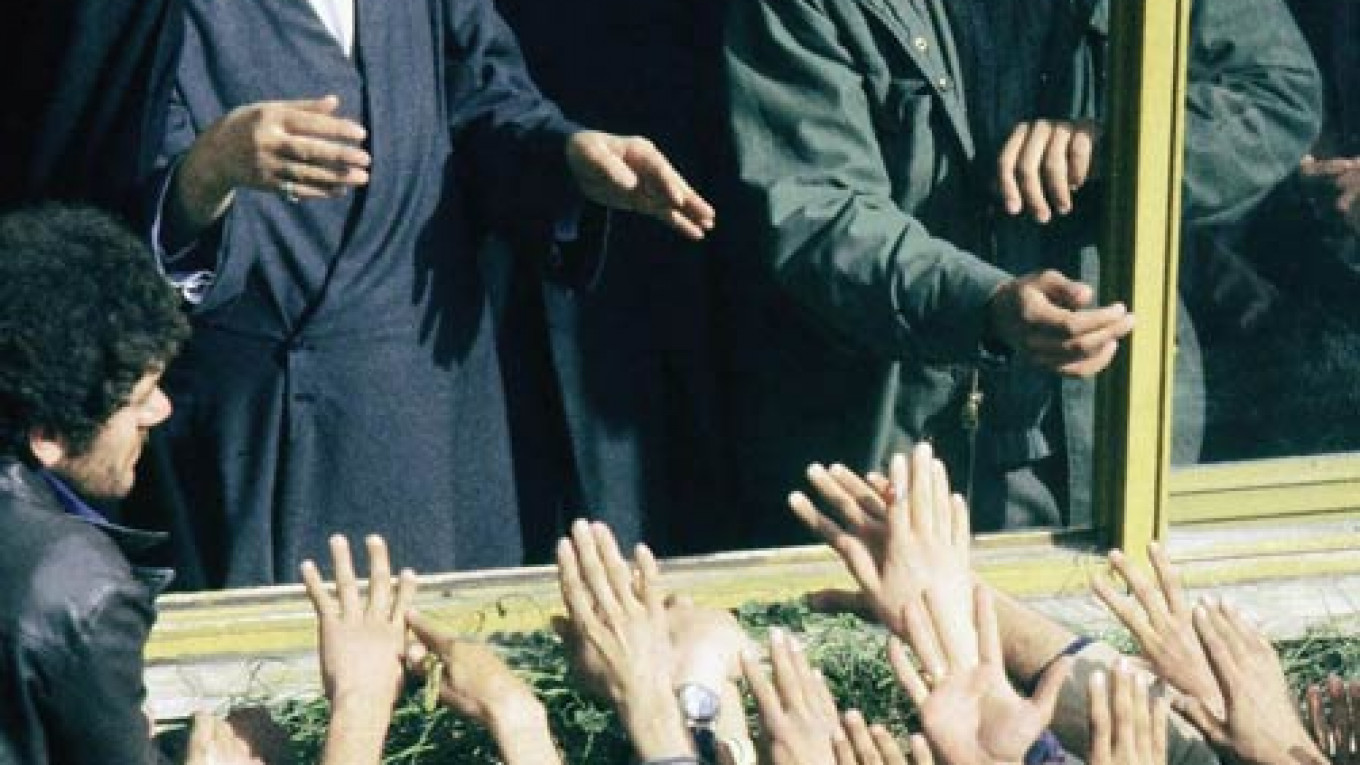Russia is now experiencing exactly the same thing that Iran went through with the Islamic Revolution of 1979. The only difference is that Russia's ayatollah is also its shah.
Prior to 1979, Iran was a rapidly modernizing country with a parliament, scientific community, progressive education and a ban on women's veils. The shah publicly called the mullahs "ignorant individuals whose thoughts have not budged for centuries and will never stir again."
But then those ignorant individuals crept out of their minarets, seized the country in a stranglehold and plunged it into darkness. They justified their actions with the claim that Iran is the greatest and most spiritual place on Earth.
And it turned out, the Iranian people liked that idea. It was much easier to shake their fists at the sinful West and put on airs of spiritual superiority than put their noses to the grindstone and try to catch up to the West.
The Iranian Revolution occurred for one simple reason: The West had become weak. Where were all those ayatollahs back in 1941, when British tanks rolled into super-holy Iran from one side and the Red Army from the other? They held their tongues because in a world where civilized countries have tanks, indigenous spirituality hasn't got a chance.
President Vladimir Putin has perfectly picked up on that weakness in the West. He realized that a Western civilization that is powerless against Islamists is, in a military sense, also powerless against him — and every other "weapon" in the West's arsenal doesn't matter to him.
As for economic sanctions, the West slapped them on Iran several years ago, but the power of the mullahs remains unshaken. In fact, sanctions only served to strengthen their authority because they blame all of the country's problems and poverty on the West. The West also imposed sanctions on President Robert Mugabe of Zimbabwe, but his hold on power remains unshaken. In fact, he has become even stronger. For 34 years he has claimed that the country is poor because the West hates Zimbabwe for having gotten up off its knees. And Mugabe brands every enemy of his regime as agents agitating for an Orange Revolution. Worse, the people of Iran and Zimbabwe actually believe it.
That is the most disturbing part for me — that the Russian people strongly support what is happening, that a majority of Russians actually believe that Western-financed fascists have taken power in Kiev and that the people of eastern Ukraine have been pushed into the desperate act of arming themselves against bands of fascist nationalists intent upon their destruction. And most amazing of all is that even the people of southeast Ukraine believe it, even though there is no evidence of a threat to their safety.
With his rapid success in annexing Crimea and his manipulation of events in southeast Ukraine, Putin has shown his ability to skillfully exploit all of his enemy's weaknesses along with all of the base instincts of the people. Like-minded leaders in Iran, Sudan, Zimbabwe and Venezuela know perfectly well that the West is really just a paper tiger. The only problem is that such regimes doom themselves to historical obscurity. Their countries never produce great scholars and scientists, innovative companies or major universities.
In his day, Peter the Great pulled Russia up out of that condition by ending backward traditions and introducing European innovations. Thanks to Peter, the Russian Empire became a world power. Now 300 years later, thanks to Putin, Russia is sinking back into that quagmire of medievalism once again.
Yulia Latynina hosts a political talk show on Ekho Moskvy radio.
A Message from The Moscow Times:
Dear readers,
We are facing unprecedented challenges. Russia's Prosecutor General's Office has designated The Moscow Times as an "undesirable" organization, criminalizing our work and putting our staff at risk of prosecution. This follows our earlier unjust labeling as a "foreign agent."
These actions are direct attempts to silence independent journalism in Russia. The authorities claim our work "discredits the decisions of the Russian leadership." We see things differently: we strive to provide accurate, unbiased reporting on Russia.
We, the journalists of The Moscow Times, refuse to be silenced. But to continue our work, we need your help.
Your support, no matter how small, makes a world of difference. If you can, please support us monthly starting from just $2. It's quick to set up, and every contribution makes a significant impact.
By supporting The Moscow Times, you're defending open, independent journalism in the face of repression. Thank you for standing with us.
Remind me later.








